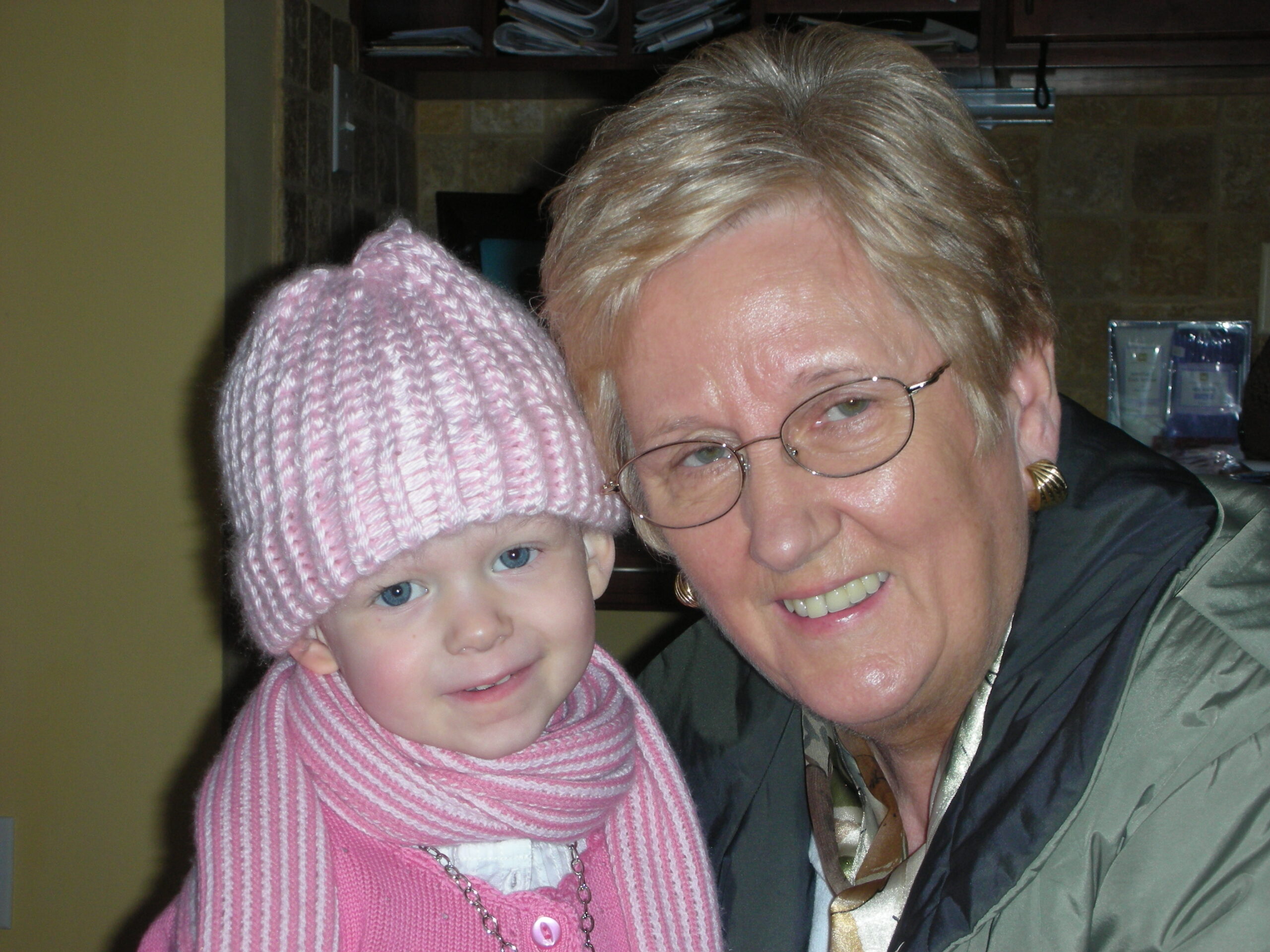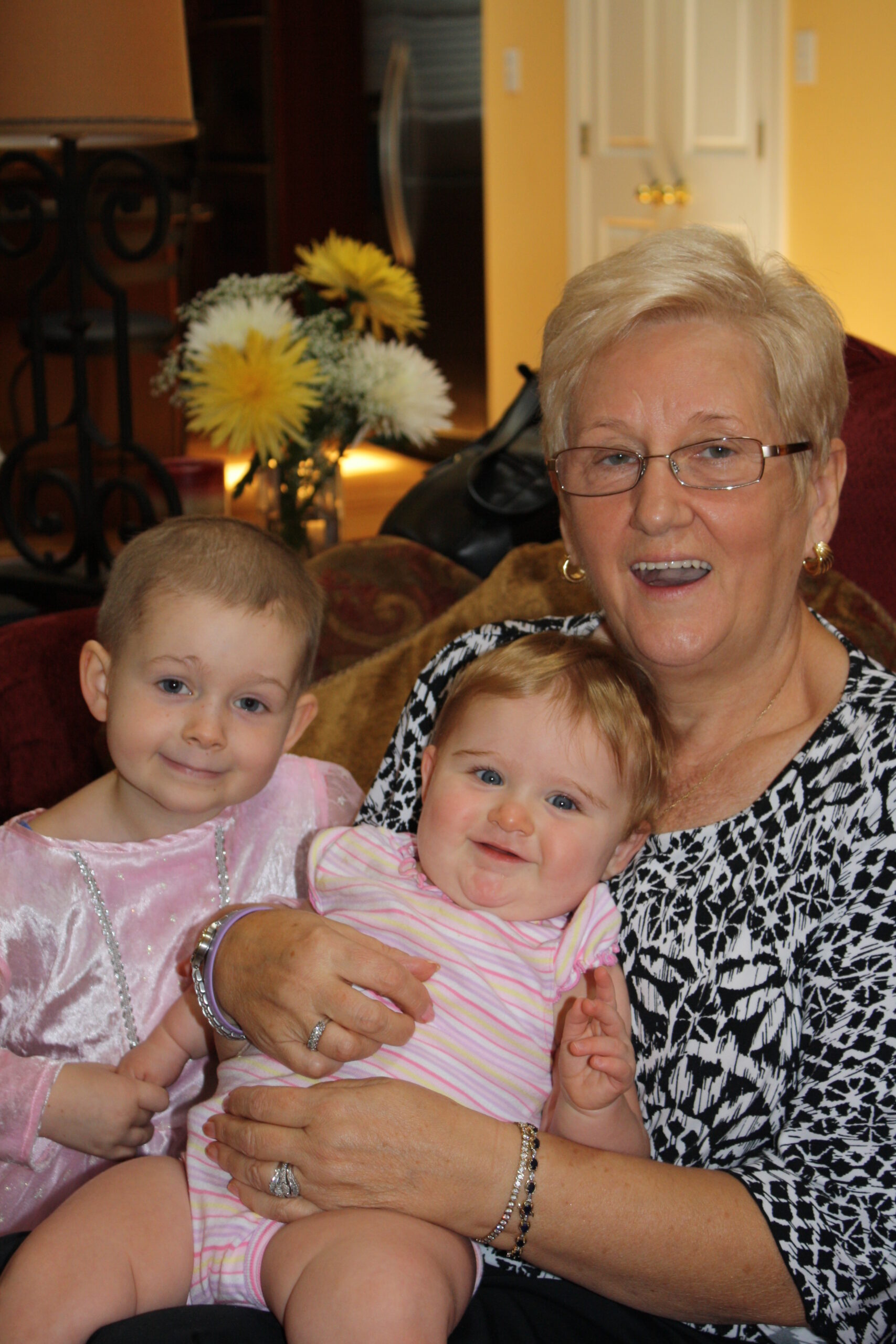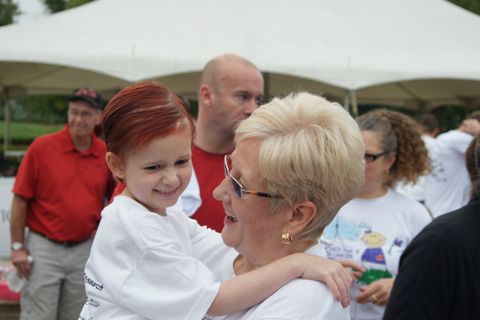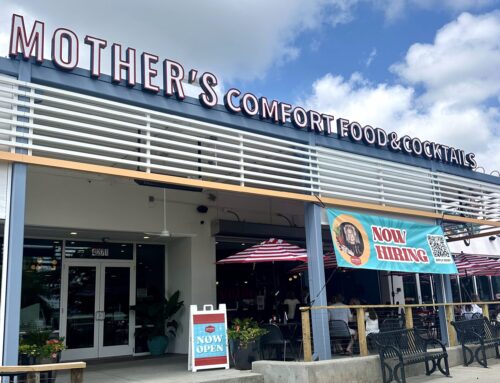
A Heartfelt Tribute to Yvonne Grau
There are friends, there are family, and then there are those friends who become family.
I’ll never forget the day we first met. Isabella was just three months old, and I was returning to work at LendingTree. We walked into their home in Ballantyne, where we met Yvonne, who was English, and her husband Rolf, who was German. Yvonne was in her early sixties and had never had children of her own. We exchanged a few words, and I asked if she wanted to hold Isabella. She hesitated, visibly nervous as she tried to feed her a bottle. I wasn’t sure of her experience with babies, but the way she looked at Isabella—so full of love—told me that this was a moment we could share.
Week after week, Yvonne came to our home to care for Isabella while I worked part-time. Both of us were navigating the journey of motherhood together, learning as we went along. It comforted me deeply to know that while I was away, Isabella’s every moment was wrapped in attention and affection. Yvonne poured her love into Isabella, witnessing all her firsts. As Isabella began to speak, Yvonne became “Nana,” and Rolf was affectionately called “Pop Pop.”
Just 18 months later, Grant was born. By then, Yvonne and Rolf had become an integral part of our lives. Yvonne treated me like her daughter, and they joined us for Christmas and Easter. The kids looked forward to their gigantic chocolate Santa (which I would hide from them), their advent calendar, and beautifully wrapped Easter baskets. Anytime their blankies had a hole in them, I would try to fix them, but would be told, Nana will do it. They carefully picked out gifts for them, such as a hideous red tie with Santa Clauses all over it, which Rolf wore each Christmas. My children gave her something she had never known—little ones who would hold her hand and snuggle up to her at every opportunity. As they grew, they ran out to greet her whenever she arrived, blowing kisses as she drove away. They didn’t just have me raise them; they had an English nanny who loved them as her own and called them things like “poppet” and “lovey.”

To my kids, Yvonne and Rolf weren’t just family friends—they were family. It wasn’t until much later that they realized they weren’t related by blood. To them, Yvonne was simply another grandmother, and they loved her with all their hearts.
When Isabella was just two years old, she began experiencing unexplained pain. The doctors dismissed it, but Yvonne never gave up. She insisted I take Isabella back for more tests and to follow ups other doctors. Her persistence drove me crazy, but she was right. Something was wrong. And when I told Yvonne that Isabella had cancer, her heart broke alongside mine.
For years, Yvonne was by our side. She stayed with Isabella at the hospital when we needed rest, brought us meals, and helped keep our house in order. She and Rolf stayed the first night with her in the hospital when the chemo started going through her veins because I couldn’t be there to watch. She took Grant often, building her own special bond with him. She was there when Sophia was born, helping me care for my newborn just as she had with her older sister. My children adored their “Nana.”
When Isabella’s life was coming to a close, witnessing the anguish in Yvonne and Rolf’s eyes was devastating. I had given them this precious gift of Isabella, and now she was slipping away. In her final days, Isabella withdrew from everything and everyone. It became a quiet space with only one or two of us at her side. Yvonne wanted to be there, but Isabella had shut herself off from the world. I couldn’t bear to listen when my mom called her that morning—when Isabella passed away.
Years passed, but the mere mention of Isabella would still bring Yvonne to tears. When I visited them, their home was filled with mementos of Isabella—her artwork, handprint gifts, photographs. I would find roses at her grave, accompanied by notes written in Yvonne’s handwriting, “From Nana and Pop Pop.” They would join us for holidays, attempting to return to the family dynamic they had once shared. But as Grant and Sophia grew older, it became more difficult for them to feel a part of that world.
Then, one day, something inexplicable happened. Yvonne’s body began to deteriorate, and though we sought answers, none were given. Each visit revealed further decline. She wouldn’t allow the children to see her, and I could barely stay long when I visited. She would cry, and Rolf would comfort her. Over the last couple of months, she lost the ability to speak, and each time I came, she screamed for me to leave. It was heartbreaking. She didn’t want me to be a witness to this. Rolf would assure her that I, too, had seen so much - that I could handle it. This woman who had given so much love to my children was now suffering, and we couldn’t stop it.
At Christmas, I had a feeling it would be the last time the kids would see her. She had changed so much, and I could see it was difficult for Grant to look at her. He tried to speak to her, but she couldn’t respond. As we were about to leave, she made sounds, signaling to Rolf to give Grant something. He picked out a small orange rooster, which he said he would take with him to Miami. As we turned to go, Grant asked, “Can I hug her?” He went to her side and wrapped his arms around her. She went still, her shaking stopped. They held each other for so long that tears welled up in my eyes. It was a moment I’ll never forget.

Last Monday, I asked Rolf if I could visit Yvonne at the hospice facility where she had just been moved. It was a rainy morning, so I took my time heading to Columbia. Twenty minutes away from the facility, Rolf called to tell me she had just passed. I missed her by twenty minutes. In my heart, I wondered if she had been waiting for me, but couldn’t hold on any longer. When I saw her, though, I breathed a sigh of relief. I knew she was no longer in pain. I stayed with her for a while, just the two of us, in that quiet room. I thanked her for loving my children so deeply and told her to find Isabella. I asked her to take care of her until I could be there, just like she had always done.
I often say that I am incredibly fortunate. Yes, I endured one of the worst losses a mother can bear. But because of this, I have met people who became vital parts of my life—people I might never have crossed paths with otherwise. I came across a quote recently that said, “If God can take someone from you that you thought you could never lose, imagine the person He could give you that you thought you would never find.” That quote immediately made me think of Yvonne.
Many beautiful souls have entered my life because of Isabella. “Nana” was a blessing to her, and all of us. I’m not sure what I believe about death anymore, but if there’s even a chance that Yvonne and Isabella are together, it brings me a little comfort.
Rolf Grau has asked that donations in Yvonne’s honor be made to the Isabella Santos Foundation. A private service will be held at their home in May for friends and family. Yvonne will be laid to rest at Calvary Magnolia Memorial Gardens with her precious Isabella later this year.
In honor of Yvonne and others like her, the Isabella Santos Foundation (ISF) is also proud to launch the Caregiver of the Year Awards Program—a new initiative to celebrate incredible individuals who go above and beyond for the children and families facing a rare cancer diagnosis.




